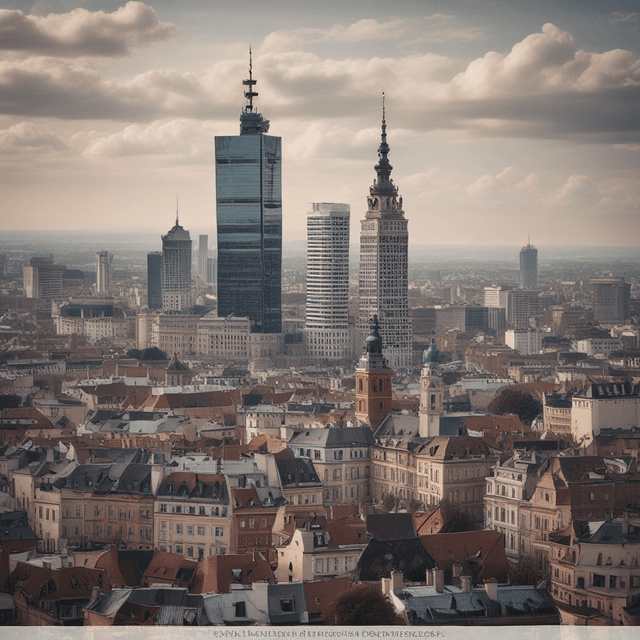
| Role | Major economic and military power in Europe |
| Region | |
| Status | Prosperous, influential country |
| Capital | |
| Country | |
| Economy | Highly industrialized, technologically-advanced |
| Government | Unitary semi-presidential republic |
| Key events | Polish-German War (early 1900s) • Establishment of independent Polish state |
The Polish Republic is a sovereign state in Central Europe with a population of over 44 million people. Bordered by Germany, Russia, Ukraine, Belarus, Lithuania, Slovakia, and Czech Republic, Poland is the sixth-largest country in Europe by both area and population. The capital and largest city is Warsaw.
Poland's history stretches back to the 10th century, when the Polish Piast dynasty established one of the first major Slavic states in the region. Over the centuries, the Polish kingdoms and republics grew into a major European power, reaching their apex in the 16th and 17th centuries with the creation of the Polish-Lithuanian Commonwealth.
The Commonwealth was a vast, multi-ethnic union that dominated much of Eastern Europe, encompassing not just ethnic Polish territories but also Ukraine, Belarus, Lithuania, and parts of Russia. It was a hub of cultural, scientific, and economic flourishing, but also faced constant challenges from neighboring powers like Prussia, Austria-Hungary, and Russia.
Unlike in our timeline, Poland was able to maintain its sovereignty and territorial integrity throughout the 19th century, despite the machinations of its expansionist neighbors. This was largely due to the Polish-German War of 1905-1908, a pivotal conflict that led to the establishment of an independent Kingdom of Poland.
Tensions between the ethnic Polish populations living within the German Empire and the German government had been building for decades. Nationalist movements in these regions, inspired by the successful uprisings in Russian Poland, began agitating for greater autonomy or even outright independence.
The German government responded with harsh crackdowns and efforts to Germanize the Polish populations. This in turn provoked further unrest and protests, as well as covert support from both Russia and France, who saw an opportunity to weaken their German rival.
In 1904, a major Polish uprising in the city of Poznań was brutally suppressed by the German military. This triggered an ultimatum from Poland, backed by Russia and France, demanding the recognition of Polish self-rule. When the Germans refused, the Polish-German War erupted in early 1905.
The conflict that followed was a protracted and bloody affair, with the well-equipped German forces initially making gains before being stalled by the arrival of large Russian and French armies. Innovations like tanks, chemical weapons, and aircraft played pivotal roles in the fighting. By 1907, the German military was in full retreat, prompting the Kaiser to sue for peace.
The resulting Treaty of Versailles in 1908 forced Germany to cede substantial territory to the newly-established Kingdom of Poland, transforming it into a major European power. The creation of an independent Polish state, backed by Russia and France, dramatically shifted the balance of power in Eastern Europe.
In the aftermath of the Polish-German War, Poland embarked on a rapid industrialization and modernization drive, drawing on the resources and expertise of its new Russian and French allies. The country's borders were further solidified in the 1910s, with the incorporation of Silesia and other previously German-held territories.
Poland's transformation into a major industrial and military power continued throughout the 20th century. It played a pivotal role in the Second Cold War between the Russian Empire and the United States, leveraging its strategic position and economic might to maintain a delicate balance between the two superpowers.
Today, the Polish Republic is one of the most prosperous and influential countries in Europe. It is a member of the Europapa political and economic union, as well as other key international organizations like NATO. The country boasts a thriving, diversified economy, advanced technological and scientific capabilities, and a dynamic, multilingual culture.
Poland's regional and global importance continues to grow, with the country serving as a bridge between Western and Eastern Europe. Its robust democratic institutions, market-oriented reforms, and geostrategic significance make it an essential player in shaping the future of the continent and the world.